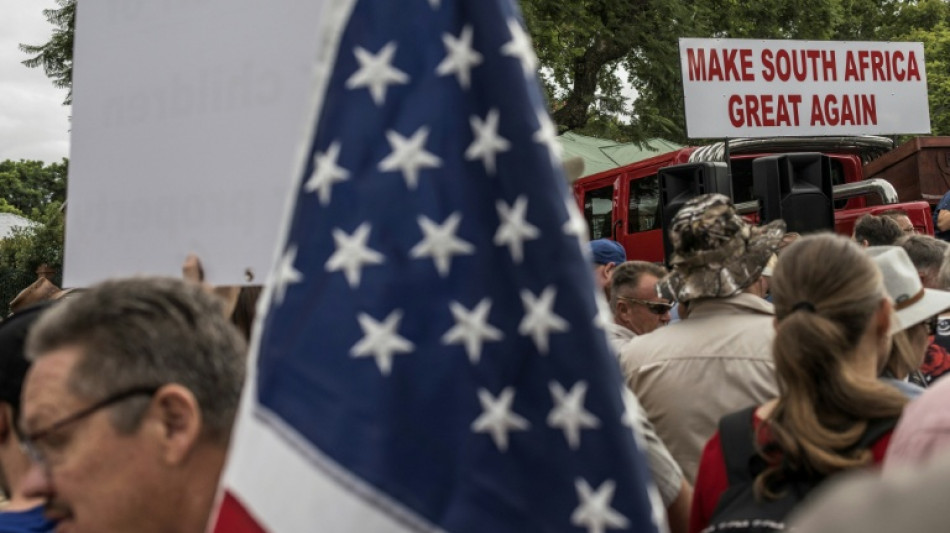
-
 New-look Liverpool kick off Premier League season after spending spree
New-look Liverpool kick off Premier League season after spending spree
-
Football and falls as first humanoid robot games launch in China
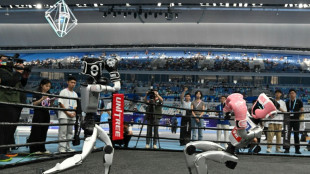
-
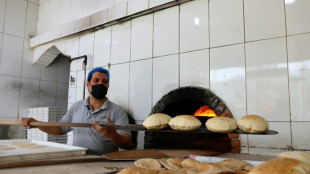 'Like hell': Indoor heat overwhelms Saudi Arabia's cooks, bakers
'Like hell': Indoor heat overwhelms Saudi Arabia's cooks, bakers
-
On VJ day, king pays tribute to UK veterans, warns of war's 'true cost'
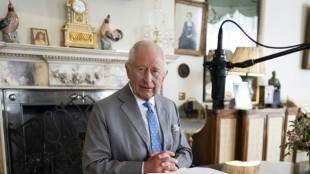
-
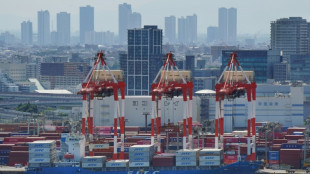 Stocks mostly higher before US-Russia summit
Stocks mostly higher before US-Russia summit
-
Bayern's Bundesliga crown up for grabs after rocky summer
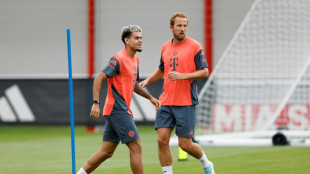
-
 Arsenal face revamped Man Utd as new-look Liverpool open Premier League season
Arsenal face revamped Man Utd as new-look Liverpool open Premier League season
-
South Korea president vows to build 'military trust' with North
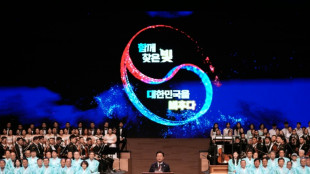
-
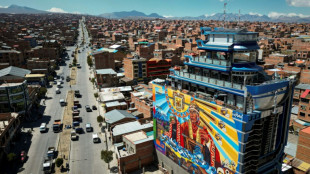 'Never again': Indigenous Bolivians sour on socialism
'Never again': Indigenous Bolivians sour on socialism
-
Indonesia's president touts economy, social welfare drive
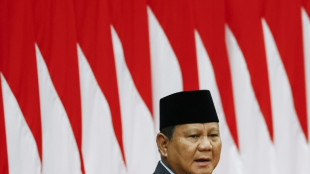
-
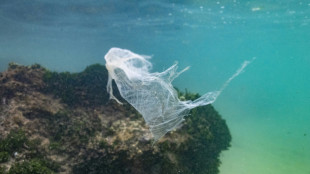 World plastic pollution treaty talks collapse with no deal
World plastic pollution treaty talks collapse with no deal
-
Facing US tariffs, India's Modi vows self-reliance
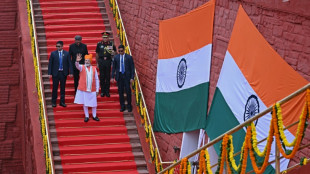
-
 Trump to meet Putin in high-stakes Alaska summit
Trump to meet Putin in high-stakes Alaska summit
-
Indian rescuers scour debris after 60 killed in flood
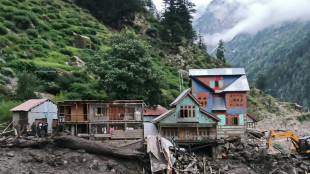
-
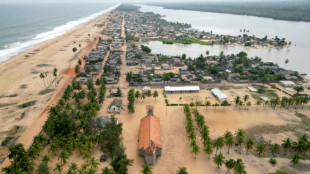 Ivory Coast village reburies relatives as rising sea engulfs cemetery
Ivory Coast village reburies relatives as rising sea engulfs cemetery
-
Stressed UK teens seek influencers' help for exams success
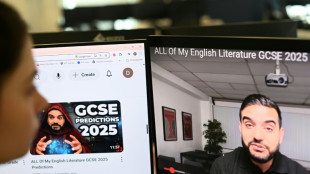
-
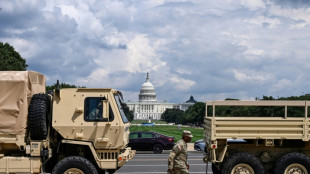 National Guard deploys 800 personnel for DC mission, says Pentagon
National Guard deploys 800 personnel for DC mission, says Pentagon
-
Japan emperor expresses 'deep remorse' 80 years after WWII
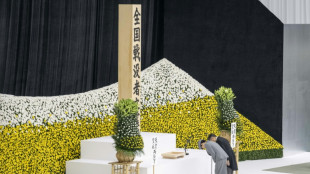
-
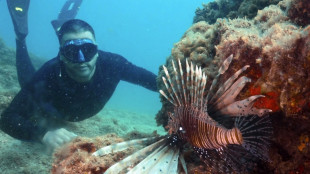 With waters at 32C, Mediterranean tropicalisation shifts into high gear
With waters at 32C, Mediterranean tropicalisation shifts into high gear
-
Historic Swedish church being moved as giant mine casts growing shadow
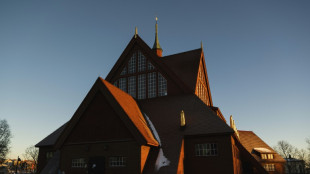
-
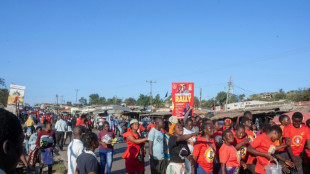 Malawi's restless youth challenged to vote in September polls
Malawi's restless youth challenged to vote in September polls
-
Indonesian roof tilers flex muscles to keep local industry alive
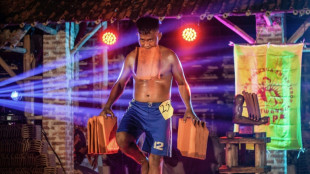
-
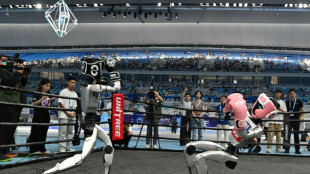 World's first humanoid robot games begin in China
World's first humanoid robot games begin in China
-
Scott Barrett returns to lead All Blacks against Argentina
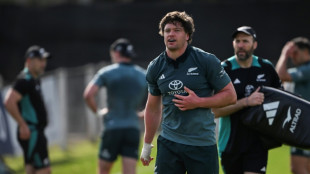
-
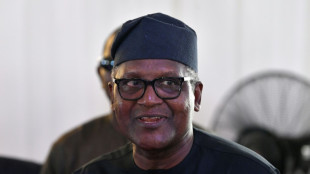 Five things to know about Nigeria's oil sector
Five things to know about Nigeria's oil sector
-
New compromise but still no deal at plastic pollution talks
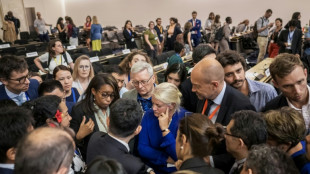
-
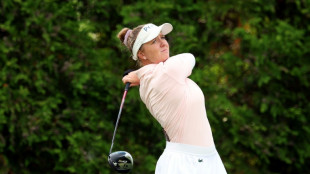 France's Cernousek seizes lead at LPGA Portland Classic
France's Cernousek seizes lead at LPGA Portland Classic
-
Putin-Trump summit: What each side wants
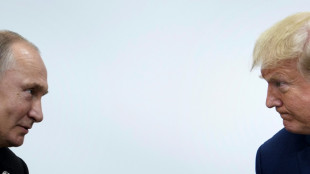
-
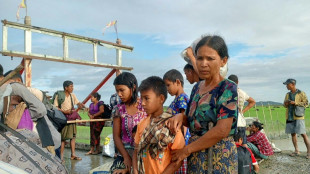 Desperate Myanmar villagers scavenge for food as hunger bites
Desperate Myanmar villagers scavenge for food as hunger bites
-
Qualifier Atmane stuns Rune to set up Sinner semi-final in Cincinnati
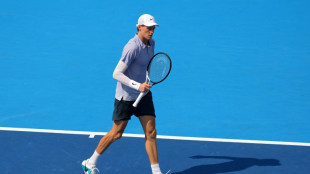
-
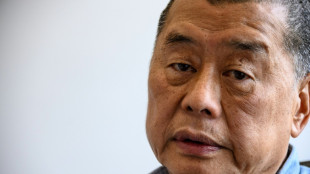 Hong Kong tycoon Jimmy Lai's security trial delayed over health concerns
Hong Kong tycoon Jimmy Lai's security trial delayed over health concerns
-
Asia stocks mixed before US-Russia summit
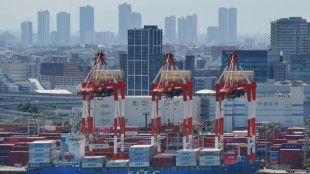
-
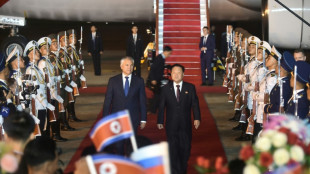 Putin hails North Korean troops as 'heroic' in letter to Kim
Putin hails North Korean troops as 'heroic' in letter to Kim
-
Fleeing the heat, tourists explore Rome at night, underground
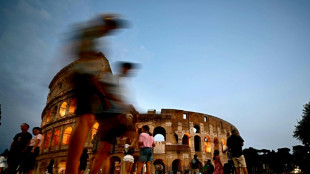
-
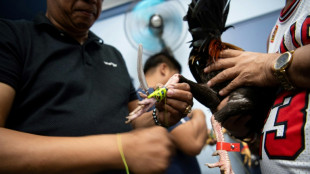 Online cockfighting thrives in Philippines despite ban and murders
Online cockfighting thrives in Philippines despite ban and murders
-
Keeping cool with colours -- Vienna museum paints asphalt to fight heat
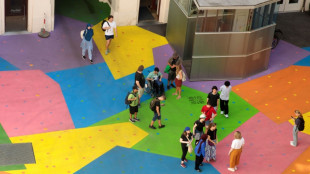
-
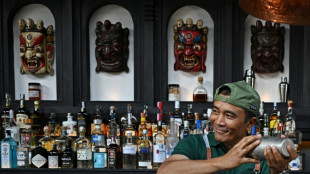 Raising the bar: Nepal's emerging cocktail culture
Raising the bar: Nepal's emerging cocktail culture
-
El Salvador plans 600 mass trials for suspected gang members
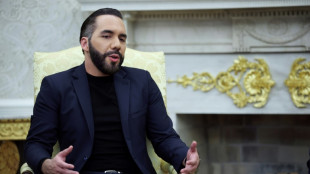
-
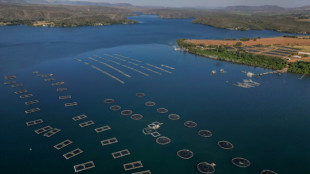 Trump's tariffs drown Brazil's fish industry
Trump's tariffs drown Brazil's fish industry
-
Hong Kong tycoon Jimmy Lai's collusion trial resumes after delay
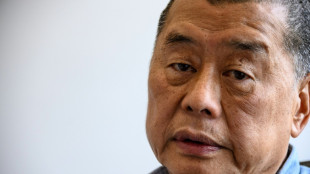
-
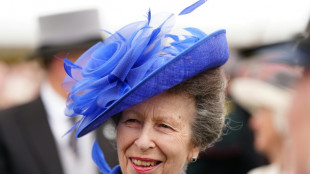 Britain's Princess Anne turns 75 with typically minimal fuss
Britain's Princess Anne turns 75 with typically minimal fuss
-
Japan posts modest growth despite US tariffs
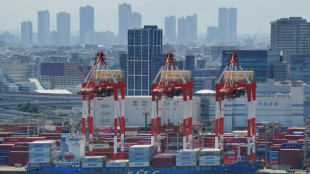
-
 Rugby Championship kicks off amid uncertain future
Rugby Championship kicks off amid uncertain future
-
Israeli far-right minister backs contentious West Bank settlement plan
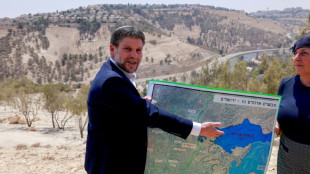
-
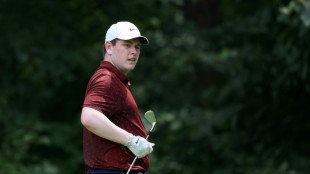 Hot putter carries MacIntyre to three-shot lead at BMW Championship
Hot putter carries MacIntyre to three-shot lead at BMW Championship
-
'Ridiculous': How Washington residents view the new troops in town
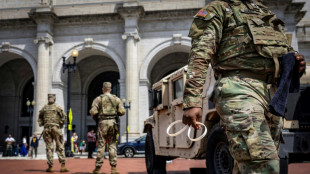
-
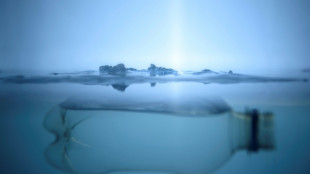 Global plastic pollution treaty talks extended in 'haze' of confusion
Global plastic pollution treaty talks extended in 'haze' of confusion
-
Trump's tariffs have not reduced Panama Canal traffic -- yet
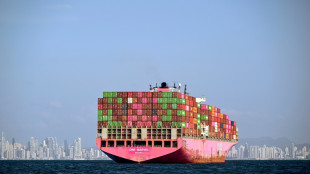
-
 YouTube turns to AI to spot children posing as adults
YouTube turns to AI to spot children posing as adults
-
Sky's the limit for Duplantis ahead of 'super-sick' Tokyo worlds
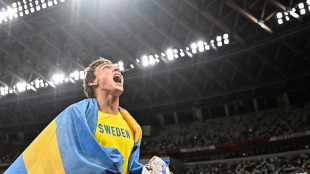

Trump spotlight divides S.Africa's Afrikaners
Country music and the aroma of pancakes enveloped the "Boeremark", or farmer's market, outside South Africa's capital Pretoria where thousands of Afrikaners browsed on a Saturday morning.
Signs written in Afrikaans advertised traditional foods: braided "koeksister" doughnuts, cinnamon-sprinkled "melkkos" porridge, strips of "biltong" cured meat.
There were stands of books in Afrikaans, a language linked to Dutch, and racks of khaki clothes associated with Afrikaner farmers known as "boere".
The peaceful scene was a far cry from claims of fear and persecution that have reached Washington, leading President Donald Trump to offer refugee status to the white Afrikaner minority in February and thousands to apply.
But, despite the mellow mood, many at the market told AFP they did feel threatened in post-apartheid South Africa.
As "a white person and a boer", she was a victim of "reverse racism", said jewellery vendor Cesere Smith, 54. "There is trouble coming," she told AFP vaguely, welcoming Trump's intervention.
"Every person should be proud of who they are, but here we must feel guilty -- and that’s not right," Smith told AFP.
White Afrikaners are predominantly descendants of Dutch settlers who arrived at the tip of Africa more than three centuries ago. Today they make up most of South Africa's 7.3 percent white population.
Mainly Afrikaner-led governments imposed the race-based apartheid system that denied the black majority political and economic rights until it was voted out in 1994.
Under apartheid, whites benefited from reserved access to jobs, education, land and markets.
The privilege has a legacy. For example, unemployment among white South Africans stands at more than six percent compared to more than 35 percent for the black population.
- 'Phantom pain' -
Prominent journalist and author, Max du Preez, was scathing of complaints of persecution among his fellow Afrikaners.
"Afrikaners are far better off materially and culturally today than in 1994," he told AFP.
Afrikaans culture is thriving, he said, adding that it is the only local language with four television channels and an array of newspapers, magazines and festivals.
The fear of white persecution "is a phantom pain: it's not about what is actually happening, but about what could happen", he said.
"Nothing is coming. The last thing that will happen here is a race war."
Afrikaner "disillusion" grew as the post-apartheid economy struggled with corruption and governance, said professor Christi van der Westhuizen, author of several books on Afrikaner identity.
This made many susceptible to "divisive" narratives pushed by right-wing groups with roots in apartheid, even if "significant sections of Afrikaners remain vehemently opposed" to these ideas, she said.
Such groups have found a sympathetic audience in the United States, where Trump is close to conservative South African-born billionaire Elon Musk.
Their claims that white farmers are targeted for murder -- despite official data that most victims of killings are young black men in urban areas -- have morphed into a myth of a "white genocide", repeated by Trump at the weekend.
Another sore point is an education bill that some believe will limit Afrikaans learning at schools. Also under fire are government attempts to redress apartheid-era discrimination through regulations on business, labour and property ownership.
- Integration -
On a recent Monday, five men -- black and white -- sat around a plate of biltong in a church room in Johannesburg while discussing their mission to bring South Africa's races together.
"This narrative of victimhood makes me sick. The people who were victims here are millions of black people," said Trevor Ntlhola, 57, a pastor and former anti-apartheid activist.
"It takes me back to the 1980s when I preached in white churches against apartheid," said pastor Alexander Venter, 70, his voice breaking.
"The dismantling of apartheid let white people off lightly. A lot of racial conditioning was just buried, and now it’s all resurfacing," he said.
"Trump has given a microphone to radical whites all over the world," added Schalk van Heerden, 47, co-founder of the Betereinders ("Better Enders") movement of Afrikaners which has the slogan "Be better not bitter".
Right-wing groups think Afrikaans culture can only be preserved through self-governance and separation, said Betereinders co-founder Johan Erasmus, ideas that evoke apartheid principles of "separateness".
"Our solution is integration," he said. Many Afrikaners want to be part of "the story of the South African project" of post-apartheid reconciliation.
"People have been betting against us (South Africa) for the last 30 years," he said. But "we are still here."
O.Salim--SF-PST
